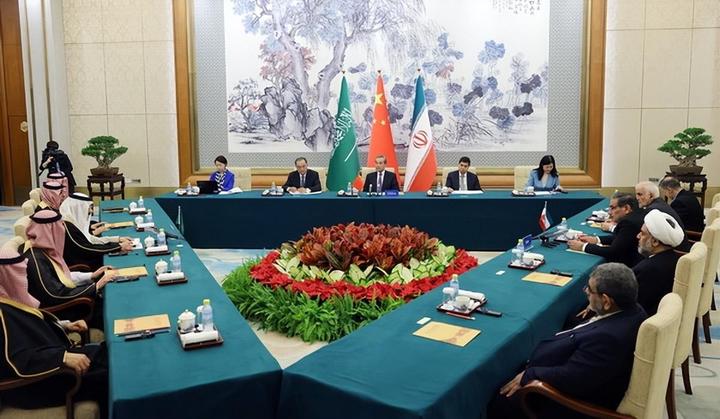
Dong Chunling, Deputy Director, Office of the Center for the Study of a Holistic View of National Security, CICIR
Jul 21, 2023
Frequent high-level contacts with China may be making a tactical difference for the United States. Tensions have eased slightly. However, the U.S. continues to pursue its broader strategy of containment. As elections approach, the Biden administration has little room to maneuver.
Jade Wong, Senior Fellow, Gordon & Leon Institute
Jul 21, 2023
Boundaries have always been a core element in international politics. The United States has extended its Monroe Doctrine from the dominance of its own hemisphere to the world at large, so it’s hard to say exactly what the boundaries of NATO will look like in the future. But we know it will be expanding.
Xiao Bin, Deputy Secretary-general, Center for Shanghai Cooperation Organization Studies, Chinese Association of Social Sciences
Jul 03, 2023
The core of the Chinese solution to the war is political. The international community has universally welcomed China’s diplomatic efforts, but different opinions have also been expressed. China must listen broadly to perfect its solution and persuade others.
Ted Galen Carpenter, Senior Fellow, Randolph Bourne Institute
Jun 16, 2023
Several countries are making attempts to play the role of mediator to reduce dangerous tensions in various regions. The United States and its closest allies have greeted such efforts with undisguised or barely concealed hostility. Such an attitude not only is unhelpful and counterproductive, it will further isolate the West in the international community.
Jade Wong, Senior Fellow, Gordon & Leon Institute
May 04, 2023
Chinese President Xi Jinping’s outreach to the president of Ukraine, Volodymyr Zelenskyy, could be a game-changer. The call was welcomed by Zelenskyy, who called it “long and meaningful.” As Beijing steps into its role as a global peacemaker, the world is taking notice.
Joseph S. Nye, Professor, Harvard University
May 03, 2023
We live in a world where geopolitical stability relies largely on deterrence. But how can we prove that deterrence works?

Lucio Blanco Pitlo III, President of Philippine Association for Chinese Studies, and Research Fellow at Asia-Pacific Pathways to Progress Foundation
Apr 26, 2023
China has upped its international statesmanship, making waves by playing the middleman to a historic Iran-Saudi Arabia agreement. Working with other countries like India and Turkey, Beijing’s economic and diplomatic leverage can be a factor in bringing Russia and Ukraine to the negotiating table.

Sebastian Contin Trillo-Figueroa, Geopolitics Analyst in EU-Asia Relations and AsiaGlobal Fellow, The University of Hong Kong
Apr 18, 2023
The Butterfly Effect has taken flight. China’s diplomatic accomplishment in reconciling Saudi Arabia and Iran could have far-reaching consequences, with Ukraine’s future caught in its wake. The unexpected nature of this historic move means that its ramifications are rapidly gaining momentum and could unleash a tidal wave of global proportions, particularly in Europe.
Richard Weitz, Senior Fellow, Hudson Institute
Apr 18, 2023
The Xi-Putin summit seems to have had little immediate impact on China-Russia relations, the war on Ukraine, on other major global issues. But the context of the meeting underscores the durability of the Beijing-Moscow alignment.
Back to Top

- China-US Focus builds trust and understanding between the U.S. and China through open dialogue among thought leaders.
- Our Offerings
- Topics
- Videos
- Podcasts
- Columnists
- Research Reports
- Focus Digest
- Stay Connected
-
Thanks for signing up!
- Get the latest stories from China-US Focus weekly.